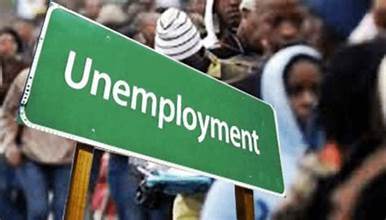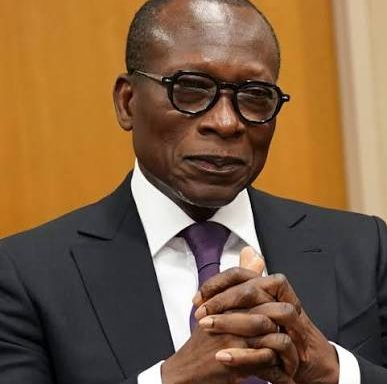Nigeria’s unemployment rate has risen to 5.3% in the first quarter of 2024, according to the latest report from the National Bureau of Statistics (NBS).
This is an increase from the 5.0% recorded in the third quarter of 2023. The report highlights significant differences between urban and rural areas, with unemployment at 6.0% in cities and 4.3% in rural regions.
Join our WhatsApp ChannelThe data, released through the 2023 Annual and Q1 2024 Nigeria Labour Force Survey, also shows disparities at the state level. Abia recorded the highest unemployment rate of 18.7%, while Nasarawa had the lowest at just 0.5%.
Urban vs Rural Unemployment
The unemployment rate in urban areas rose to 6.0% in the first quarter of 2024, while rural areas saw a smaller increase to 4.3%. “This gap between urban and rural unemployment highlights the challenges of job creation in Nigerian cities,” said a senior analyst at NBS.
While unemployment is higher in cities, rural regions showed stronger employment-to-population ratios, with 78.9% of rural residents employed compared to 69.5% in urban areas.
The working-age population in Nigeria reached 116.6 million in 2023, with a labour force participation rate of 76.3%. However, the labour force participation rate declined to 77.3% in Q1 2024, down from 79.5% in Q3 2023.
Wage Employment on the Rise
Wage employment showed positive growth, rising to 16.0% in Q1 2024 from 12.7% in Q3 2023. Men were more likely to be in wage employment than women, with 20.1% of males compared to 12.1% of females in paid jobs.
Urban residents also had more opportunities for wage employment, as 21.8% of urban workers were in such roles, compared to just 8.1% in rural areas.
Educational Attainment and Unemployment
Unemployment rates also varied by educational attainment. The NBS report noted that individuals with post-graduate education had the lowest unemployment rate at 2.0%.
READ ALSONigeria’s Inflation Rate Climbs To 34.19% In June Amid Increasing Costs
However, those with post-secondary education experienced an unemployment rate of 9.0%. “There is a need to address the gap in employment opportunities for those with higher education,” said a labour market expert.
Youth and Time-Related Underemployment
The unemployment rate among Nigerian youth (ages 15-24) fell slightly to 8.4% in Q1 2024, down from 8.6% in Q3 2023. Despite this small improvement, youth remain vulnerable in the job market.
Time-related underemployment, which refers to those working fewer hours than they would like, also decreased to 10.6% in Q1 2024, down from 12.3% in Q3 2023.
The report showed that youth not in education, employment, or training (NEET) increased to 14.4% in Q1 2024. The NEET rate was higher among females at 15.9%, compared to 13.0% among males.
Nigeria’s unemployment rate continues to rise, affecting both urban and rural populations, although rural areas show stronger employment figures.
Wage employment has seen growth, but disparities in educational attainment and youth unemployment remain challenges. The government will need to address these issues to improve the country’s labour market conditions in the future.
“More efforts are required to create sustainable jobs, especially for young people and those with higher education degrees,” an economist commented, urging the government to implement targeted policies to address these gaps.
Emmanuel Ochayi is a journalist. He is a graduate of the University of Lagos, School of first choice and the nations pride. Emmanuel is keen on exploring writing angles in different areas, including Business, climate change, politics, Education, and others.
- Emmanuel Ochayihttps://www.primebusiness.africa/author/ochayi/
- Emmanuel Ochayihttps://www.primebusiness.africa/author/ochayi/
- Emmanuel Ochayihttps://www.primebusiness.africa/author/ochayi/
- Emmanuel Ochayihttps://www.primebusiness.africa/author/ochayi/


















